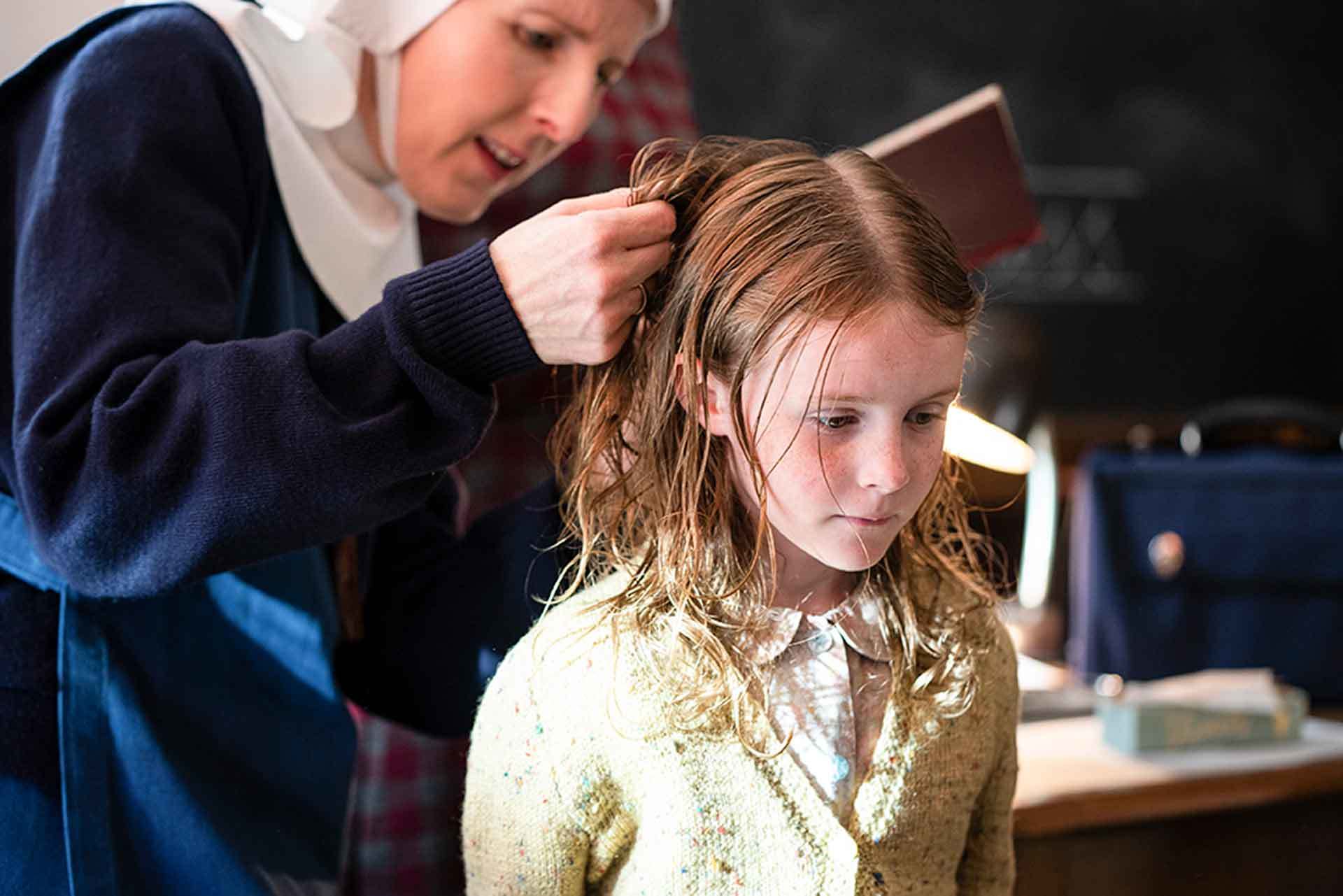
So much has changed in the past week since I sat down to write my first blog post of the season. We have gone from the looming threat of coronavirus, with the first cases in my home state, to two of the hospitals in my health system being at bed capacity while treating COVID-19 patients. All of this, in the matter of 10 days. I am eating, sleeping, breathing, and working COVID-19. My children are no longer at daycare and school. My husband is working from home. I, of course, am still working full-time, because babies don’t care about a global pandemic, and they will come when they are ready. Life has turned upside-down in 10 short days, and unfortunately, this is only the beginning.
Tuning into this week’s episode of Call the Midwife was a welcome distraction from the news. I quickly became enthralled again in the lives of the midwives and nuns at Nonnatus, and the story lines of Tina Atkins and Laverne Bulmer. As I watched through the episode, tears welled in my eyes as Laverne realized her mother was going to be okay, and again at the kindness of Sister Julienne as she waited by Tina’s bedside after surgery. For a short time, I was able to set aside the heaviness of stress and anxiety I’ve been carrying around for the past two weeks.
I couldn’t help but reflect on one of the last scenes of this episode. Sister Julienne feels as though she has failed at her work; she couldn’t help Tina, and didn’t know how to help her in the future. Sister Monica Joan so brilliantly shares this passage: “It is not the penance that we choose which is pleasing to God. It is the setting aside of ego, and the submission to His will.” Sister Julienne responds, “So I must accept the world as it is, not as I would wish it to be.”
Adapting to the world as it is right now has not been the easiest thing to do. This world is scary. I spend parts of every day in disbelief that this is our reality. I go from being grateful that I am healthy and strong, and thinking that when it’s my turn, and I get the virus (because really, with the way this virus spreads, plus the dwindling supplies of personal protective equipment for health care workers, it’s not if, it’s when I get it) I’m going to be fine. Until fifteen minutes later, when I flip to the mindset of, ‘what if I get this, and I die?’ I am terrified I might pick it up and bring it home to my family. I can easily start to feel panicked when I think about not seeing my extended family for months, or when I think about how we really can’t go anywhere for an unknown amount of time. When my thoughts start snowballing, and I ask myself, “how am I going to do this for 4, 6, or 8 more weeks? Or more?” I have to stop. I need to take a deep breath. Let’s get through this day, then this week, and go from there. I can wish all I want for the carefree spring times of years past, but that’s not our reality.
Sister Monica Joan reminded me that while I cannot change the present, I must instead change how I respond to it. Going forward, for me, this may mean placing a limit on how much news I consume daily, and decreasing my time on social media. Also, it means continued careful precautions, like home isolation, frequent and thorough hand washing, not touching my face, and the meticulous routine I’ve developed upon coming home from work to reduce my chances of bringing COVID in to my home. I’m working on being more mindful, and have started using the app Headspace (free for health care providers through 2020! Check out the link here [https://www.headspace.com/health-covid-19]). Listening to guided meditations or even just the sleep music has helped tremendously in the past few days.
I know everything is overwhelming right now, but it’s not going to last forever. It’s okay to feel all of your feelings, even if you vacillate between anxiety and fear, to being joyful for the ability to spend more time with your children or partner, or grateful for the things you have. The next several weeks are not going to be easy. We will have to pay close attention to the recommendations of the top health experts—doctors, scientists, epidemiologists—even though it means temporarily sacrificing some of our freedoms and essentially overhauling our lives. If we can all do our best to adapt to these new, but temporary, circumstances, it will be for the greater good of humankind.
Disclaimer: I realize I am writing this post from a place of extreme privilege. Even though my job is on the “front lines,” I have job and income security. I have a safe house, can obtain groceries or food as needed, and a have a supportive partner, whose industry allows him to work from home at this time. I know that is not the case for many Americans. I do understand that the economic effects of the COVID-19 pandemic are going to be devastating for many people, but I also fear for the lives of so many more if we do not comply with the recommendations from top health experts.
Get Another Take: Recommended Call the Midwife Recaps
From Thirteen.org | The British Tele Dish
From WTTW Chicago | The Playlist Blog
From NPT Nashville | The Vanderbilt University School of Nursing Recap
From WETA Washington | The Tele Visions Blog
From WGBH Boston | Watch Drama After Dark or Read the weekly recap